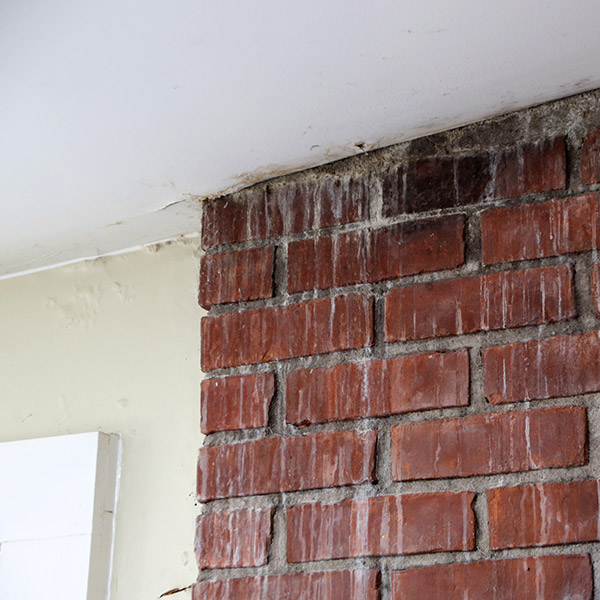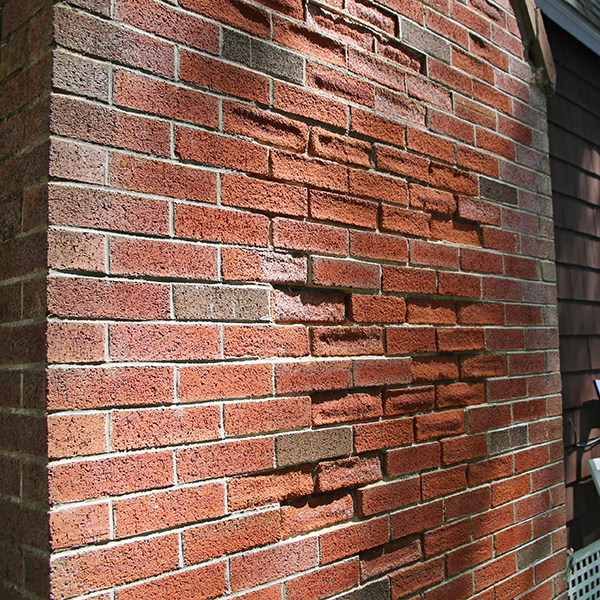Ahh! We have Chimney Leaks!
After a long, cold winter, most homeowners look forward to the warmer spring weather. While the springtime showers are just what our lawns and flowers need, the rainy weather can also sprout chimney leaks. While masonry chimneys are strong and durable, long-term exposure to rain, ice, wind, and heat can weaken the masonry and other components that can allow water to leak inside the chimney. Chimney leaks require immediate intervention to prevent further damage. If you notice one or more of the following signs of a chimney leak, schedule a chimney inspection with a certified chimney professional as soon as possible.
 Water Stains Around the Fireplace
Water Stains Around the Fireplace
Noticing water stains on the ceiling and walls near the fireplace is a sign of a chimney leak. It typically occurs when the chimney flashing is damaged or is improperly installed. The flashing is the sheet metal that seals the seam where the chimney and roofline meet. Its exposure to changing weather conditions can eventually cause it to warp or corrode, allowing water to seep through the gaps. Damaged flashing requires immediate repair to prevent water damage to the attic and roof.
Musty Odor After It Rains
A musty smell coming from the fireplace after rain is often another sign of a potential chimney leak. When the soot, creosote, and other residues in the chimney are exposed to water and oxygen, it produces a musty odor. A damaged or missing chimney cap or masonry damage is the most likely cause. Contact your chimney professional to schedule a chimney inspection and cleaning. Locating and repairing the chimney leak and cleaning the chimney will eliminate the bad smell and prevent mold.
Puddles in the Fireplace
Anytime there is water or a puddle inside the fireplace is a cause of concern that needs immediate attention to prevent water damage. The chimney should have a chimney cap covering the exposed flue pipe to help prevent rain from dripping inside the chimney. If the chimney cap is damaged or missing, water can leak inside the fireplace when it rains.
Sounds of Dripping Water
Sometimes you may hear dripping water sounds when it rains even though you may not see any moisture. The chimney crown is a porous cement surface on top of a masonry chimney. Its sloped surface deflects rain away from the chimney. When cracks develop on the chimney crown’s surface, water can seep between the masonry and flue pipe. It is essential to contact a chimney professional as soon as possible to prevent extensive water damage.
 Spalling Bricks
Spalling Bricks
Bricks and mortar are durable but porous materials that absorb moisture when it rains, causing them to spall or crack. Temperature changes during the winter cause the absorbed water to constantly freeze and thaw, further expanding the cracks and eroding the mortar joints. The spring and summer rainfall can accelerate already water-damaged bricks, and you may notice gaps in the mortar joints and chunks of brick lying on the ground. Water can also seep through these cracks and crevices and cause extensive chimney damage making your fireplace unsafe to operate. If not repaired timely, the chimney’s structural integrity can weaken, increasing the risk of a partial or complete collapse.



